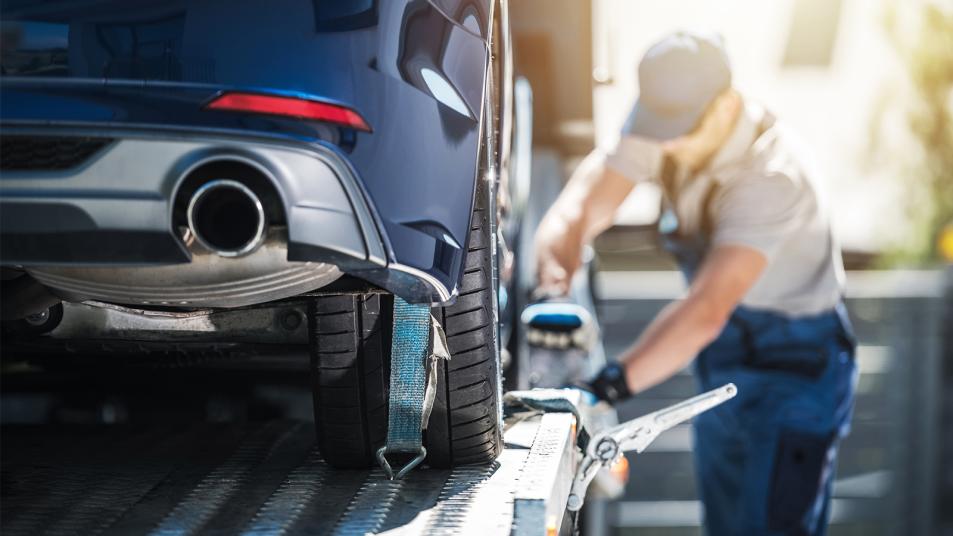Quick Facts About Car Financing After Repossession
- Expect your credit score to drop by at least 100 points after a car repossession.
- Some lenders specialize in working with individuals with repossessions but be prepared for higher interest rates.
- Budget carefully after having a car repossessed, and be realistic about what you can afford with your replacement car.
When talking about automobiles, repossession is a legal process where a lender reclaims a vehicle when the borrower defaults on a car loan. Whether you’ve experienced voluntary or involuntary repossession, the process varies across states and among different lenders.
Once you’re ready to move forward and purchase a new car, the repossession will likely still appear in your credit history. This mark can have a significant negative impact on your buying experience. Financing a car after repossession can be challenging, but it is possible. Here are some tips.
Rebuild Your Credit
A single repossession instance can critically damage your credit score. Credit reporting agencies use different formulas for calculating credit scores, but it’s typical to see at least a 100-point reduction following a car repossession. On a scale of 300 to 850, 100 points can make a big difference. This drop will make it more challenging to secure new credit in the future, including a car loan.
It’s likely that at some point, you’ll want to finance a car after repossession. Immediately set a goal to rebuild your credit score. Pay all your bills on time. Reduce your debt-to-income ratio. Dispute errors on your credit report, and avoid applying for new loans during this time.
Rebuilding your credit can take time, so be patient. Consider using a secured credit card or a credit builder loan to help you rebuild. These options can help you re-establish a positive payment history. It shows lenders that despite the repossession, you are a responsible borrower.
How Long Does a Repo Car Stay on My Credit?
Experian says car repossessions, or “repos,” like other credit blemishes, stay on your credit report for seven years. The timeframe begins on the date of the first missed payment. While the repossession stays on your credit report for seven years, it has less and less of an effect on your ability to get credit as those years wear on.
“If an auto account is closed due to a repossession, it will remain on a consumer’s credit report for seven years from the original missed payment date. After seven years, the account will automatically be deleted from the credit report,” says Christina Roman, Experian’s consumer education and advocacy manager.
Getting a Loan: Research Your Options
When you’re ready to finance another vehicle, research your options carefully. Some lenders specialize in working with individuals who have gone through repossession. Others might be more reluctant. Choose a lender who understands your situation and can provide financing options that work within your budget. Be prepared to pay a higher loan interest rate because of the negative mark in your credit history.
Many buy-here-pay-here dealerships offer in-house financing. They finance the car themselves instead of working with a third-party lender. If you have a repossession on your credit report, you may have an easier time getting approved for a loan at these establishments. However, tread carefully. These loans often have less favorable terms, including service fees and higher interest rates.
RELATED: Buy Here, Pay Here: What You Need to Know
Can I Still Get a Loan With a Repossession on My Credit?
According to Roman, it’s more challenging to qualify, but it can be done.
“A repossession signals to future lenders that a consumer may be a risky borrower, which will make it harder to be approved for another car loan. If the consumer is approved for an auto loan, it will likely be at a higher interest rate, which will be costly, or they may encounter other less favorable terms like a higher down payment requirement,” she said.
“The consumer may need to rely on a cosigner to help purchase another car. However, it’s important to understand that if the primary borrower fails to make payments, the cosigner’s credit will be negatively impacted in addition to their own, and they will be held responsible for the remaining debt on the vehicle.” Roman added.
Plan to Get Preapproved
It’s best to get preapproved for your new loan before shopping around. It will give you insight into interest rates and loan terms ahead of time. This will outline exactly how much you can afford to borrow. Additionally, having preapproval from a lender gives you leverage to negotiate with car dealerships, which can help you save money.
Budgeting Intentionally
Whichever lender you choose, it’s essential to budget carefully — even after you’ve rebuilt your credit. Make sure you can afford your monthly car payments. Also, account for any associated expenses, like fuel, insurance, and general maintenance costs.
Adjust your budget to accommodate the cost of your new car loan. Be realistic about what you can afford, and buy a vehicle priced comfortably below that threshold. Buying from a private seller can be less expensive and help you stay within your budget in the long run.
You can also reduce your monthly payments by increasing your down payment or extending your loan term. However, it is essential to remember that extending the loan’s length will increase your loan’s total cost. You’ll pay more in interest over time.
Editor’s Note: This article has been updated for accuracy since it was originally published. Chantel Wakefield contributed to this report.











I was making good payments on my car got repoed but the place I closed down Michael Motors are closed down and I ain’t know where to go to make my payment so I start paying and that was my fault I made mistakes but now I’m trying to get financing and give me a vehicle and willing to put down 1500